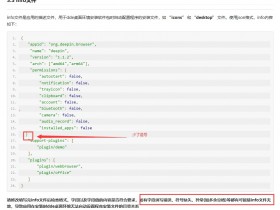- A+
这是替C#微信交流群群友做的一个小实例,目的就是在datagridview选择对应行以后,点击button后获取对应行的ip,并执行相应的操作,其实我觉得这样的话button没必要非放置到datagridview里面的!但是为了满足群友的需求,还是这么做了。
先看一下运行效果:

1. DataGridView 添加一列checkbox
DataGridViewCheckBoxColumn newColumn = new DataGridViewCheckBoxColumn();
newColumn.HeaderText = "选择";
dataGridView1.Columns.Add(newColumn);
这样添加的列是放在最后一列,也许你希望它在其它列,例如第二列,那么可以:
dataGridView1.Columns.Insert(1, newColumn);
2. DataGridView 添加一个button
btn1.Name = "btnRun";
btn1.Text = "Run";
btn1.Visible = true;
btn1.Location = new Point(550, 80);
btn1.Size = new Size(80, 50);
btn1.Parent = this;
btn1.Click += new EventHandler(btn1_Click);
//this.Controls.Add(btn1);
dataGridView1.Controls.Add(btn1);
3. datagridview合并单元格,详见完整代码.
完整代码:
using System; using System.Collections.Generic; using System.ComponentModel; using System.Data; using System.Drawing; using System.Linq; using System.Text; using System.Threading.Tasks; using System.Windows.Forms; namespace WindowsFormsApp28 { public partial class Form1 : Form { public Form1() { InitializeComponent(); } Button btn1 = new Button(); private void Form1_Load(object sender, EventArgs e) { DataTable dt = new DataTable(); dt.Columns.Add("IP"); dt.Columns.Add("Option"); dt.Columns.Add("button"); dt.Rows.Add("192.168.1.10", null, null); dt.Rows.Add("192.168.1.11", null, null); dt.Rows.Add("192.168.1.12", null, null); dt.Rows.Add("192.168.1.13", null, null); dt.Rows.Add("192.168.1.14", null, null); dt.Rows.Add("192.168.1.15", null, null); dt.Rows.Add("192.168.1.16", null, null); dt.Rows.Add("192.168.1.17", null, null); dt.Rows.Add("192.168.1.18", null, null); dt.Rows.Add("192.168.1.19", null, null); dataGridView1.DataSource = dt; //var list = new List<Object>(); //list.Add(new { IP = "192.168.1.10", Option = "null", button = "null" }); //list.Add(new { IP = "192.168.1.11", Option = "null", button = "null" }); //list.Add(new { IP = "192.168.1.12", Option = "null", button = "null" }); //list.Add(new { IP = "192.168.1.13", Option = "null", button = "null" }); //list.Add(new { IP = "192.168.1.14", Option = "null", button = "null" }); //list.Add(new { IP = "192.168.1.15", Option = "null", button = "null" }); //dataGridView1.DataSource = list; DataGridViewCheckBoxColumn newColumn1 = new DataGridViewCheckBoxColumn(); newColumn1.HeaderText = "选择"; //dataGridView1.Columns.Add(newColumn); dataGridView1.Columns.Insert(3, newColumn1); DataGridViewButtonColumn newColumn2 = new DataGridViewButtonColumn(); newColumn2.HeaderText = "控件"; //dataGridView1.Columns.Add(newColumn); dataGridView1.Columns.Insert(4, newColumn2); dt.Columns.Add("action"); dataGridView1.Rows[0].Cells[0].Value = true; //dataGridView1.Rows[0].Cells[1].Value = true; btn1.Name = "btnRun"; btn1.Text = "Run"; btn1.Visible = true; btn1.Location = new Point(550, 80); btn1.Size = new Size(80, 50); btn1.Parent = this; btn1.Click += new EventHandler(btn1_Click); //this.Controls.Add(btn1); dataGridView1.Controls.Add(btn1); } private void btn1_Click(object sender, EventArgs e) { // MessageBox.Show("123"); for (int i = 0; i < dataGridView1.Rows.Count; i++) { string otherValue = dataGridView1.Rows[i].Cells[0].EditedFormattedValue.ToString(); if (otherValue == "True") MessageBox.Show(dataGridView1.Rows[i].Cells[2].Value.ToString()); } } private void dataGridView1_CellContentClick(object sender, DataGridViewCellEventArgs e) { if (e.ColumnIndex == dataGridView1.Columns[1].Index) MessageBox.Show(dataGridView1.Rows[e.RowIndex].Cells[2].Value.ToString()); } /// <summary> /// 将当前单元格中的更改提交到数据缓存,但不结束编辑模式,及时获得其状态是选中还是未选中 /// </summary> /// <param name="sender"></param> /// <param name="e"></param> private void dataGridView1_CurrentCellDirtyStateChanged(object sender, EventArgs e) { if (dataGridView1.IsCurrentCellDirty) { dataGridView1.CommitEdit(DataGridViewDataErrorContexts.Commit); } } private void dataGridView1_CellValueChanged(object sender, DataGridViewCellEventArgs e) { try { if (dataGridView1.Rows.Count > 0) { int rowIndex = dataGridView1.CurrentCell.RowIndex; int colIndex = dataGridView1.CurrentCell.ColumnIndex; if (colIndex == 0) //第一列 { string _selectValue = dataGridView1.CurrentCell.EditedFormattedValue.ToString(); if (_selectValue == "True") { for (int i = 0; i < dataGridView1.Rows.Count; i++) { if (i != rowIndex) { string otherValue = dataGridView1.Rows[i].Cells[0].EditedFormattedValue.ToString(); if (otherValue == "True") { ((DataGridViewCheckBoxCell)dataGridView1.Rows[i].Cells[0]).Value = false; } } } } } } } catch (Exception ex) { } } private void button1_Click(object sender, EventArgs e) { } private void dataGridView1_CellPainting(object sender, DataGridViewCellPaintingEventArgs e) { // 对第5列相同单元格进行合并 if (e.ColumnIndex == 5 && e.RowIndex != -1) { using ( Brush gridBrush = new SolidBrush(this.dataGridView1.GridColor), backColorBrush = new SolidBrush(e.CellStyle.BackColor) ) { using (Pen gridLinePen = new Pen(gridBrush)) { // 清除单元格 e.Graphics.FillRectangle(backColorBrush, e.CellBounds); // 画 Grid 边线(仅画单元格的底边线和右边线) // 如果下一行和当前行的数据不同,则在当前的单元格画一条底边线 if (e.RowIndex < dataGridView1.Rows.Count - 1 && dataGridView1.Rows[e.RowIndex ].Cells[e.ColumnIndex].Value.ToString() != e.Value.ToString()) e.Graphics.DrawLine(gridLinePen, e.CellBounds.Left + 2, e.CellBounds.Bottom - 1, e.CellBounds.Right - 1, e.CellBounds.Bottom - 1); //画最后一条记录的底线 if (e.RowIndex == dataGridView1.Rows.Count - 1) e.Graphics.DrawLine(gridLinePen, e.CellBounds.Left + 2, e.CellBounds.Bottom - 1, e.CellBounds.Right - 1, e.CellBounds.Bottom - 1); // 画右边线 e.Graphics.DrawLine(gridLinePen, e.CellBounds.Right - 1, e.CellBounds.Top, e.CellBounds.Right - 1, e.CellBounds.Bottom); // 画左边线 e.Graphics.DrawLine(gridLinePen, e.CellBounds.Left , e.CellBounds.Top, e.CellBounds.Left , e.CellBounds.Bottom); // 画(填写)单元格内容,相同的内容的单元格只填写第一个 if (e.Value != null) { if (e.RowIndex > 0 && dataGridView1.Rows[e.RowIndex - 1].Cells[e.ColumnIndex].Value.ToString() == e.Value.ToString()) { } else { //e.Graphics.DrawString((String)e.Value, e.CellStyle.Font, //Brushes.Black, e.CellBounds.X + 2, //e.CellBounds.Y + 5, StringFormat.GenericDefault); } } e.Handled = true; } } } } } }
----------------------------------------------------
以上就是本节的全部内容,如果感觉有用,请多多的点击在看和分享,需要进技术交流群的,请加小编微信zls20210502,切记备注 进群!




